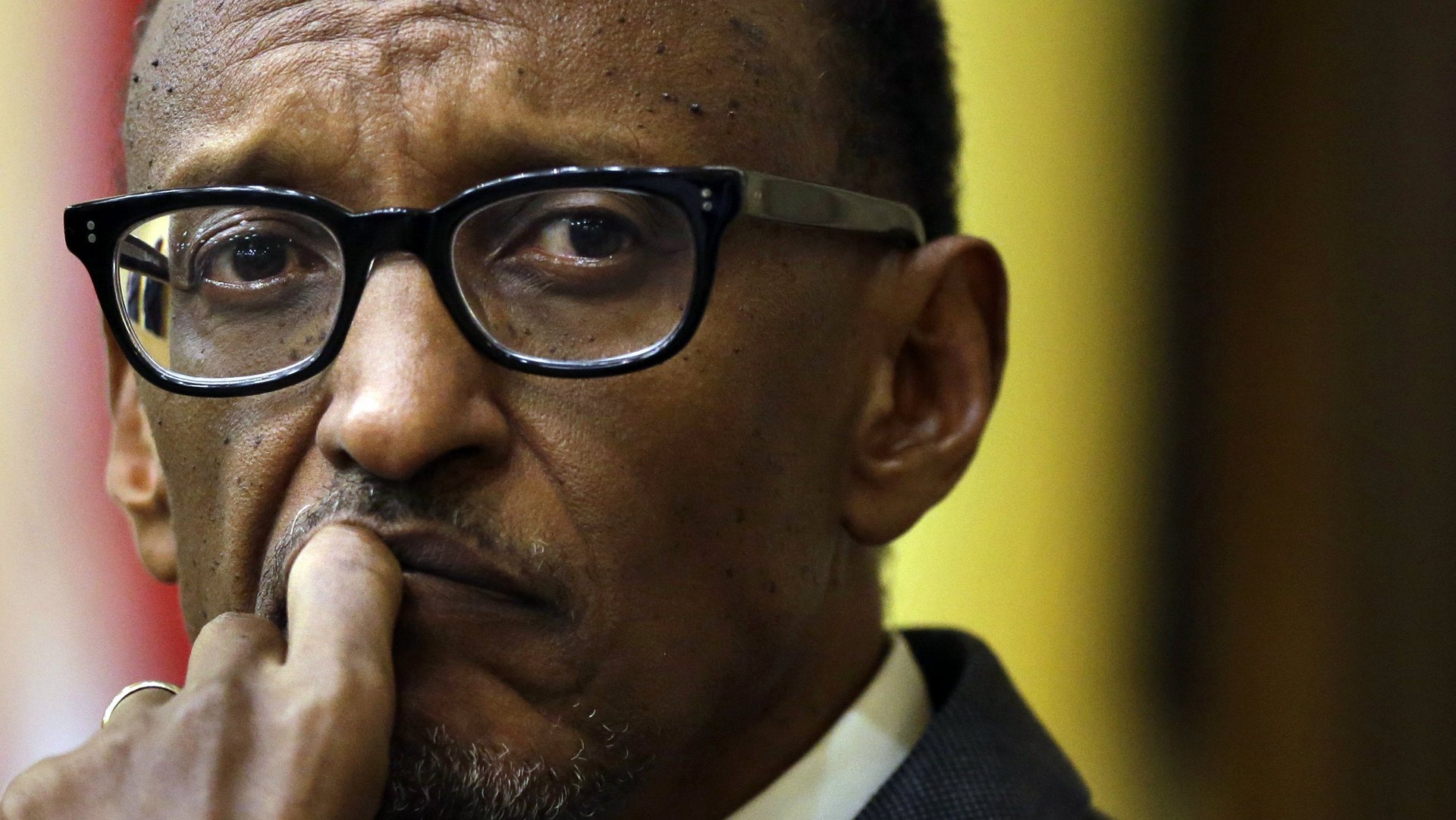Rwanda cut its presidential term to five years from seven, but Kagame could stay on for 17
Rwanda’s parliament has voted in favor of a five-year presidential term, down from the seven-year term under the current constitution. The vote comes as the constitution itself is on the verge of being revised and could allow the incumbent Paul Kagame run for a third term in 2017, when his two-term 14-year tenure is due to end.


Rwanda’s parliament has voted in favor of a five-year presidential term, down from the seven-year term under the current constitution. The vote comes as the constitution itself is on the verge of being revised and could allow the incumbent Paul Kagame run for a third term in 2017, when his two-term 14-year tenure is due to end.
The legislators also chose to preserve the current two-term limit in a revision in Article 101—subject to extension to one more term, if the electorate deem it necessary.
As it says in Article 167 of the revised constitution:
Considering the citizen petitions preceeding the coming into force of this revised Constitution that were informed by the nation-building achievements and creation of a sustainable development foundation, the President of the Republic completing the term of office referred to in Paragraph One of this Article may be reelected for a seven (7) years term of office.
It goes on to say:
The President of the Republic who has completed the term of office of seven (7) years referred to in Paragraph 3 of this Article may be re-elected as provided for by Article 101 of this Constitution.
The upshot is that if president Kagame decides in 2017 he wants to run for another seven years and wins, he would also have the option to contest again afterwards for another two terms of five years each. In other words it is possible he could stay in office for another 17 years.
The issue of third terms in African countries is both controversial and polarizing. Western governments, led by the United States, often put pressure on African leaders who seek to extend their mandate to keep their promises and honor their country’s constitutions which typically suggest two-term limits. In recent years though some leaders have sought to have their country’s constitution revised to give a third term a legal footing.
The issue is also polarizing because some local African commentators argue it is up a country’s electorate to decide if they want a leader to remain in office for longer. Rwanda’s difficult history with the genocide of 1994 and Kagame’s key role in helping the small land-locked country get set on a path to reconciliation and economic growth, means he is well regarded in his country and internationally.
Kagame, who turned 58 last week, would be 77 by the time he leaves power if he decided to take advantage of the revisions to the constitution and was re-elected.
Although this standalone revision has not yet been passed, all indications show it will be passed; all the revisions are awaiting senate approval.
Over three million petitions from across the country were presented to parliament, seeking amendment of the Constitution, to allow President Kagame a chance to stand again in 2017.
The Green party, the country’s only opposition, was against the removal of term limits. However, the party lost a court case to block the constitutional changes.
The country’s constitution has been amended four times, this will be the fifth, the changes for this amendment still face a popular referendum, although there is little chance they will fail.